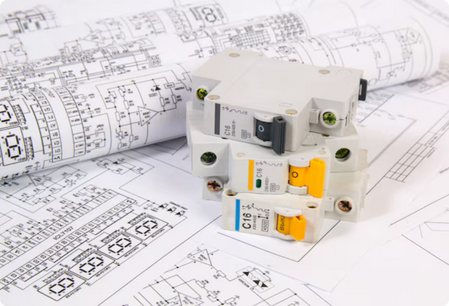How to Become an Electrical Engineer
An electrical engineer is someone who designs, develops, and maintains electrical systems and equipment. They work in various industries, including power generation, telecommunications, construction, and manufacturing, ensuring the efficient and safe operation of electrical systems.
A Day In The Life
If you were an Electrical Engineer, you’d spend your day…

Designing electrical systems for power generation, distribution, or electrical installations

Collaborating with teams to integrate electrical systems with other engineering disciplines

Testing and troubleshooting electrical systems
Wanna see an electrical engineer in action? Check out this video!
Is This Career Right for Me?
According to the Holland Codes, people in this career generally possess the following traits:
Challenges & Skills
No job is easy, but if you’ve got the right skills, you’ll be ready to handle anything that comes your way!


Challenges & Skills Needed to Overcome Them
Designing complex systems
Skills: Strong understanding of electrical design principles
Ensuring compliance with regulations
Skills: Knowledge of electrical safety standards and local regulations
Managing project deadlines
Skills: Time management and prioritisation
Integration with other engineering disciplines
Skills: Collaboration and teamwork skills
Keeping up with technological advancements
Skills: Continuous learning and adaptability
Sound like you? Then you might just have what it takes to tackle these challenges and thrive as an Electrical Engineer!
Career Pathway
Thinking long term? This career path shows you how you can grow your role (and salary!) in the world of engineering.
With every step, you’ll gain more skills, responsibility and opportunities. If you’re passionate about engineering, this career path could be your perfect match!
Global Opportunities
Pros in this field are in demand everywhere—your career could literally take you places!
Top countries hiring professionals in this field:

United States
Home to leading tech companies and a booming renewable energy sector, creating demand for electrical engineers in automation, power generation and smart grids.

Germany
Strong automotive, manufacturing, and energy sectors require engineers for power systems, automation and smart technologies in industrial environments.

Canada
Growing demand for energy, particularly renewable energy projects, along with tech industries in cities like Toronto and Vancouver.
We hope this guide has helped you understand what to expect and inspired you to explore a path that fits your strengths and passions. Good luck—and have fun discovering your future!


